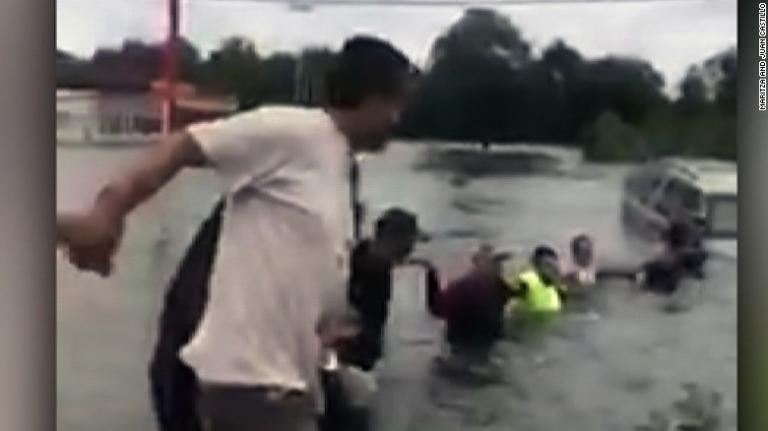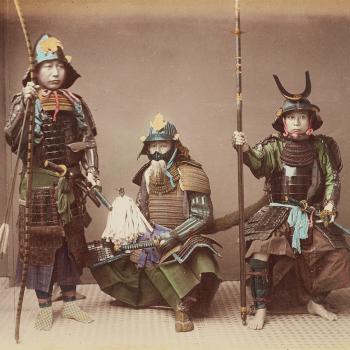Video of a human chain of rescuers pulling an elderly man from a car in floodwaters in Houston is going viral. In these troubled times, it’s a bright light of solidarity and selfless action.
It is one of the paradoxes of our nature that when the right thing to do is obvious and immediate, we will do it even at risk to ourselves. But when it takes more contemplation to see it, when cause and effect are more separate in time and space, the same people who will jump into floodwaters to help a stranger in distress will support the most horrid actions.

Somewhere out there among the ordinary people saving lives in Houston is a guy with a Confederate flag sticker on his car. There’s a woman putting her safety at risk who supports torturing people suspected of terrorism. There’s someone wading through the flood who thinks Black Lives Matter is a terrorist group. There’s someone taking heroic action who supports more war in Afghanistan and Iraq, who thinks we should invade Syria tomorrow and nuke North Korea the day after that.
And there are people out there conducting rescue and relief operations who deny that climate change from burning fossil fuels is a real thing, that it was a driver of the disaster.
We are very good at selfless action. We are also very good at not seeing the long-term and far-reaching effects of our action: out of sight truly is out of mind.
The same people who responded with loving kindness to save a drowning cow quite likely went home and had a hamburger.
It is a common refrain that we need to get out of our heads and into out hearts in order to save the world. But when I see people respond so strongly to the immediate need of desperate people — or even desperate animals — I don’t think it’s our hearts that are the problem.
Our hearts readily entrain with the suffering of others. It’s that our heads don’t make the cause-and-effect connection between our actions and choices, and resulting suffering that isn’t right in front of us at the time.

















